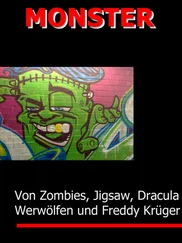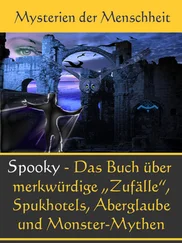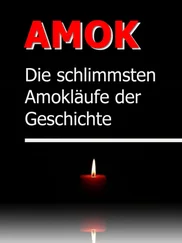“I am a believer, sir, in the scientific method.” I straightened in my seat, painfully aware of my sack-cloth shirt and britches.
His gaze, if possible, grew even keener. “And nothing else besides?”
“Nothing, sir. I consider myself a scholar.”
“Been away from your books for some time, by the look of you.”
I took a sip of whiskey. “Six years.”
“Had much luck, have you, in that time? Got your little pile together?”
I spread my arms. “You see before you, sir, the whole of my estate.”
He clucked his tongue and nodded. “That doesn’t surprise me, Kansas. The teachings of Descartes are well and good for the old country—; but here they just don’t churn the butter. This nation was founded on belief — credulity pure and simple — just as the great French Republic was founded on skepticism. Faith, whatever clothes you put it in, is the corner-stone of our Union. You’re an American, sirrah—; not an Egyptian or a Swede. Without an understanding of belief — without a sympathy for it, a talent for it — you will never make your penny.” He shook his head. “No, my friend! The Enlightenment is not for us.”
“Evidently,” I said faintly.
The Redeemer held up a hand. “Not because it isn’t interesting —; don’t get peevish. I’m sure it’s a rare delight, this rationalism of yours. It’s just not useful—; not to me.” He leaned forward till his chin rested on the table. His voice, already mellow with drink, dropped to a satisfied whisper. “ Belief, contrary-wise, is. Belief flows through this country like a river. There’s not a thing to match it. Compared to belief, Kansas, the Mississippi is a trickle down a pant-leg.”
I smiled at this—; how could I help but smile? The Redeemer’s face, however, showed no hint of its earlier mischief. I took a careful sip of rye.
“That’s all it’s ever been to me,” I said.
He sat back on his bench and nodded, a nod that carried over at some point to a slight, nervous bobbing of the head. “Tell me something else, prelate’s boy,” he said after a time. He raised a finger tentatively, almost shyly, and pointed at my left eye. “Was it Papa knocked that eye-ball of yours crooked?” He took my cup from me and refilled it. “Was he no follower of Descartes?”
This question, so simple and direct, made the floor shift subtly beneath my feet. I’d gone so long without thinking about my father that even his face had grown vague to me—; I hoped, one day, to forget it altogether. The Redeemer had asked the history of my eye, however, and I was helpless to refuse him. It took three cups more for me to tell it—; when at last I did, the words had a dry, uncertain sound, as though the years had leached the meaning out of them.
“My father endeavored — to corrupt me, you might say. I refused to be corrupted.”
“ Corrupt you?” the bar-keeper said, leaning brazenly over the bar to gawk at me. “Come at you, did he? Come at you with his stiff little Muh! — Muh! — Methodist—”
“I was born a doubter,” I said quickly. “I had no use for my father’s eschatologies. That’s all it was.”
The Redeemer squinted at me. “His which?”
“His views on the end of the world.”
“Ah!” His squint changed, subtly, to a grin. “You preferred that the world not end, I take it?”
“Not just then.”
“And that’s when he stuck his foot in your eye?” the Redeemer said blithely.
In six years no-one had mentioned my eye at all, let alone asked its whyfores. The topic was skirted around with no small measure of distaste by everyone I met with on the river, on account of its being my left eye, white as a boiled egg, and terrible to look at—; it was taken for a hex by old and young alike. Before me, however, was a man who not only considered my disfigurement fit subject for a fire-side chat, but plainly wanted to talk of nothing else. As I related the history of my escape from my father’s house, ploddingly and with no end of pauses, it became clear that he held my eye in the highest possible esteem. Again and again his attention, diverted by this or that trifle, would swing back to it like the door of a saloon—:
“That eye of yours, now, Mr. Ball—: can you see aught out of it?”
“Very little.”
“But you do see?”
I gave a deprecatory shrug. “If it pleases you to call it seeing.”
His eyes moistened with excitement. “Describe it for us.”
I hesitated. “I can’t make out anything at all, stupidly, unless the other’s closed—”
“The hell you say!”
“—and when I do close it, I see only in a shadowy sort of way, as if through the bottom of a bottle. Not much light gets in.” I tapped the side of my head forlornly.
“No shapes?” said the Redeemer. He went quiet a moment. “No— forms of any sort?”
I shrugged. “Sometimes I can make out forms. The idea of forms, better said.” I smiled at him. “As in Plato’s cave.”
“I see,” he murmured. “Perhaps, however, your vision will improve?”
For the first time since I’d left home, a man of intelligence— however eccentric — had taken an interest in me. And what an interest! In my loneliness and gullibility I practically did the work of seduction for him. The Redeemer had only to open his mouth, like a crocodile, and let me totter in. What’s more, in some back larder of my brain, unconquered as yet by his whiskey and his guile, I knew this full and well. Had I guessed what lay in store for me — the killings, the privations, the final apocalypse in Memphis — I might have recovered myself in time. Or perhaps not. It was clear enough, staring into his narrow, sharp-eyed face, that he didn’t mean me well.
“Where are your shoes?” I asked, pointing at his feet. His stockings were dusted with ash from the fire.
“Lost,” he said flatly.
I grinned at him. “However will you preach?”
“Don’t fret on account of my stockings, Kansas. My boys are bringing round a pair of boots directly.” As he said this his eyes fell, seemingly idly, to my own feet—; but he found nothing there to tempt him. “With luck, they may have something in your size,” he added. He jerked his chin toward the bar. “Kennedy’s already placed his order. Haven’t you, Kennedy?”
“Just so they pull the fuh! — fuh! — feet out of them first,” Kennedy said. The Redeemer guffawed. Looking from one of them to the other, it seemed to me that I was in the company of two boastful and precocious children.
The Redeemer stared down into his little cup of rye, seemingly forgetting me altogether. For the first time it occurred to me that he might possibly be drunk. There was a candle between us and he brought his own left eye close to it, holding it open with his fingers, as if to demonstrate its beauty and its health. An instant later he sat up with a start. His greasy, half-fermented breath seemed to stain the air between us.
“Come in on a boat of some stripe, did you, Kansas?”
“Yes,” I lied. Why I did this I can’t say—; there was only the conviction that the canoe, the one thing of value that I owned, should be kept from him.
“What boat?” the Redeemer said, still studying his cup.
“A stern-wheeler from Natchez.” I took a breath. “Put me off at Thompson’s farm.”
His eyes met mine. “I didn’t hear of any boat passing,” he said. “What landing was it?”
“I told you,” I answered hurriedly. “Back up the river — three miles or so — family name of Thompson—”
At this moment the door was shouldered open and three men entered, shambling and sullen-faced, dragging a fourth between them. Catching sight of the Redeemer, they stopped and laid their burden, whose head was wrapped in a muslin sheet, down in the middle of the room. One of them called out to Kennedy in a tired voice and he commenced drawing drafts of beer. All eyes came to rest on the Redeemer.
Читать дальше












